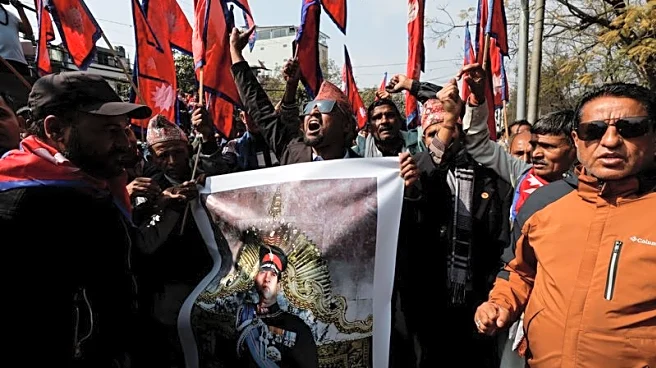In a troubling turn of events, Chenyue Mao, an Atlanta-based banker with Wells Fargo, has been prohibited from departing China, stirring anxiety among Western business leaders about the potential repercussions
Did You Know
The shortest war lasted 38 minutes.
?
AD
of operating in the world's second-largest economy. Chinese authorities claim that Mao is implicated in a criminal investigation and must cooperate fully, a situation that not only places her career in jeopardy but also raises alarm bells about the treatment of foreign nationals in China. This incident comes against a backdrop of heightened tensions between the U.S. and China, reflecting ongoing concerns about the implications for foreign workers.
The implications of Mao's exit ban extend beyond her personal predicament. As the Chinese government reassures the world of its openness to foreign investment and tourism, this case starkly reveals the precarious nature of navigating legal frameworks in the country. It underscores a growing concern that foreign executives may be at risk, faced with the harsh reality that they could be entangled in legal disputes, often with little warning or explanation. The involvement of a major U.S. bank in such a situation has shocked many and prompted discussions about how authorities manage foreign business operations.
As Mao's case unfolds, it serves as a potent reminder of the fragile balance between globalization and national security, where corporate interests can quickly collide with regional regulations and legal systems. The eyes of the business world will undoubtedly remain fixed on China, wary of the potential challenges that lie ahead for those whose livelihoods depend on successful cross-border engagements. For foreign executives, the stakes have never been higher, and the cautionary tale of Chenyue Mao highlights the complexities of conducting business in an increasingly fraught landscape.
Q&A (Auto-generated by AI)
What are China's exit ban policies?
China's exit ban policies allow authorities to restrict individuals from leaving the country, often as part of ongoing investigations. These bans can affect both Chinese citizens and foreign nationals, typically involving cases related to corruption, economic crimes, or national security. The rationale behind these policies is to ensure cooperation with legal proceedings and investigations. Such measures have raised concerns among foreign businesses about the risks associated with operating in China.
Who is Chenyue Mao?
Chenyue Mao is a banker employed by Wells Fargo, based in Atlanta. She has gained attention after being barred from leaving China due to her alleged involvement in a criminal case, as stated by China's Foreign Ministry. This incident highlights the complexities surrounding foreign nationals working in China and the potential legal ramifications they may face.
What is the nature of the criminal case?
The specifics of the criminal case involving Chenyue Mao have not been publicly detailed. However, Chinese officials have indicated that she is obliged to cooperate with an investigation related to her activities while in China. Such cases often involve allegations of financial misconduct or violations of Chinese law, which can be broadly interpreted.
How do exit bans affect foreign relations?
Exit bans can strain diplomatic relations between China and other countries, particularly when they involve foreign nationals. Such incidents may lead to increased scrutiny of China's legal practices and human rights record, prompting diplomatic protests or calls for intervention. Countries may also reconsider their citizens' travel to China, impacting business and tourism.
What are the implications for Wells Fargo?
The situation involving Chenyue Mao could have significant implications for Wells Fargo, particularly regarding its operations in China. It raises concerns about the safety and legal risks faced by employees abroad, potentially affecting recruitment and retention. Moreover, the incident may influence the bank's strategic decisions and its approach to compliance with local laws.













